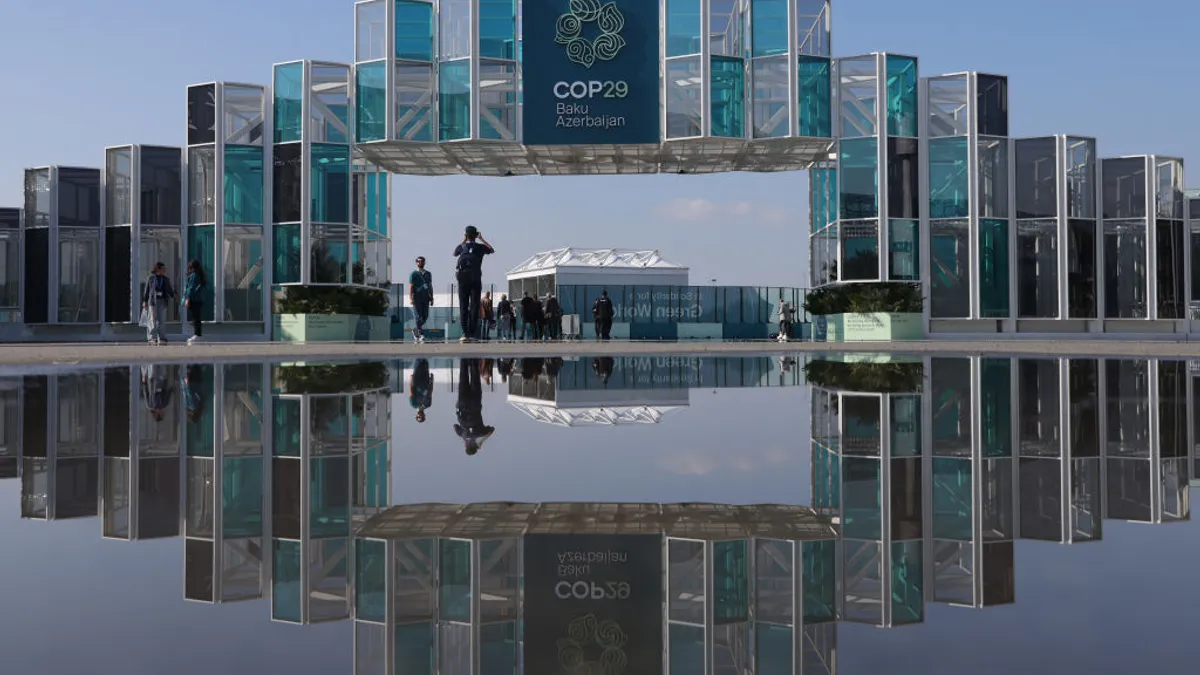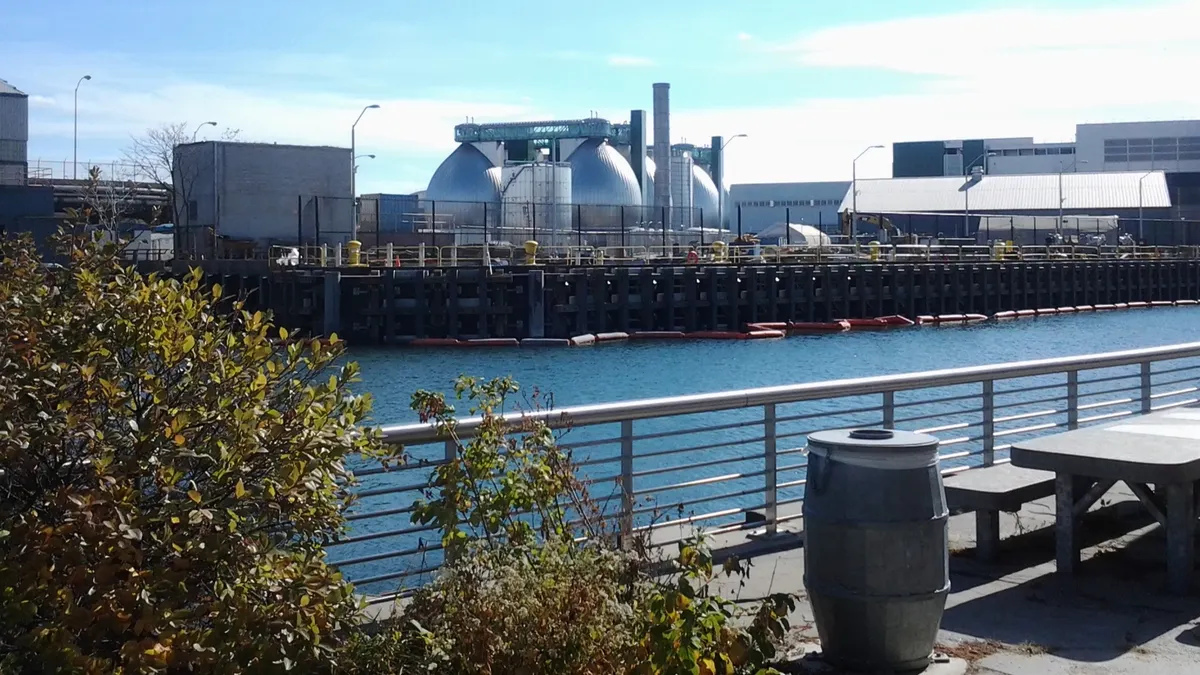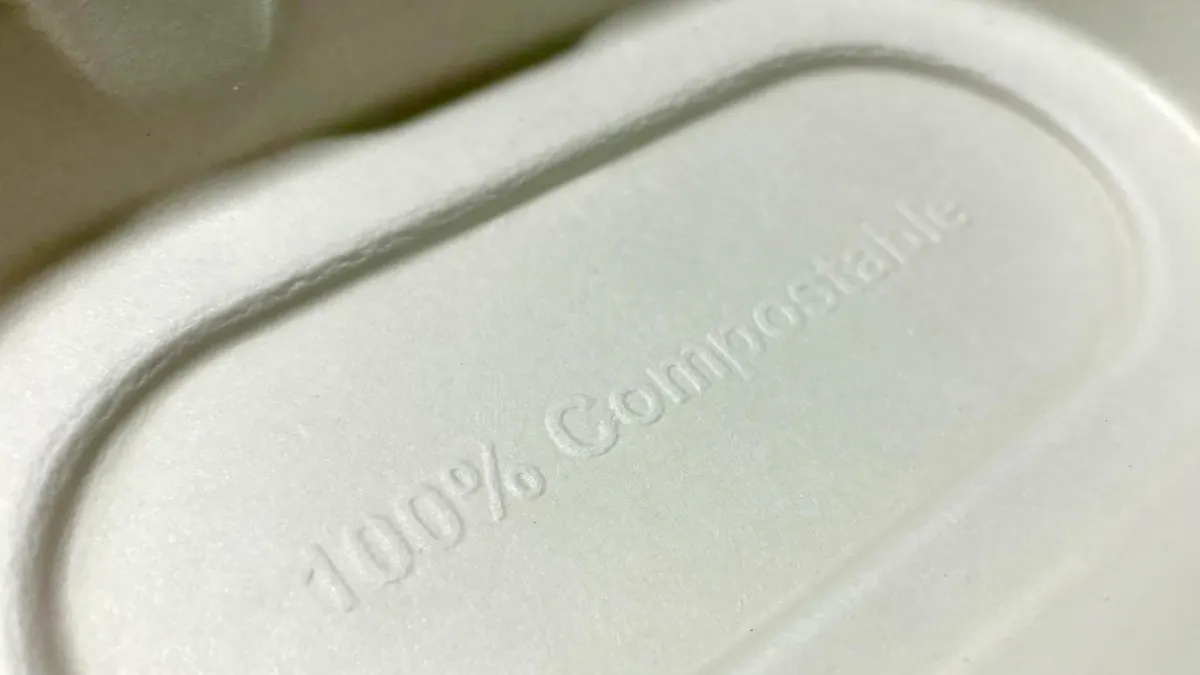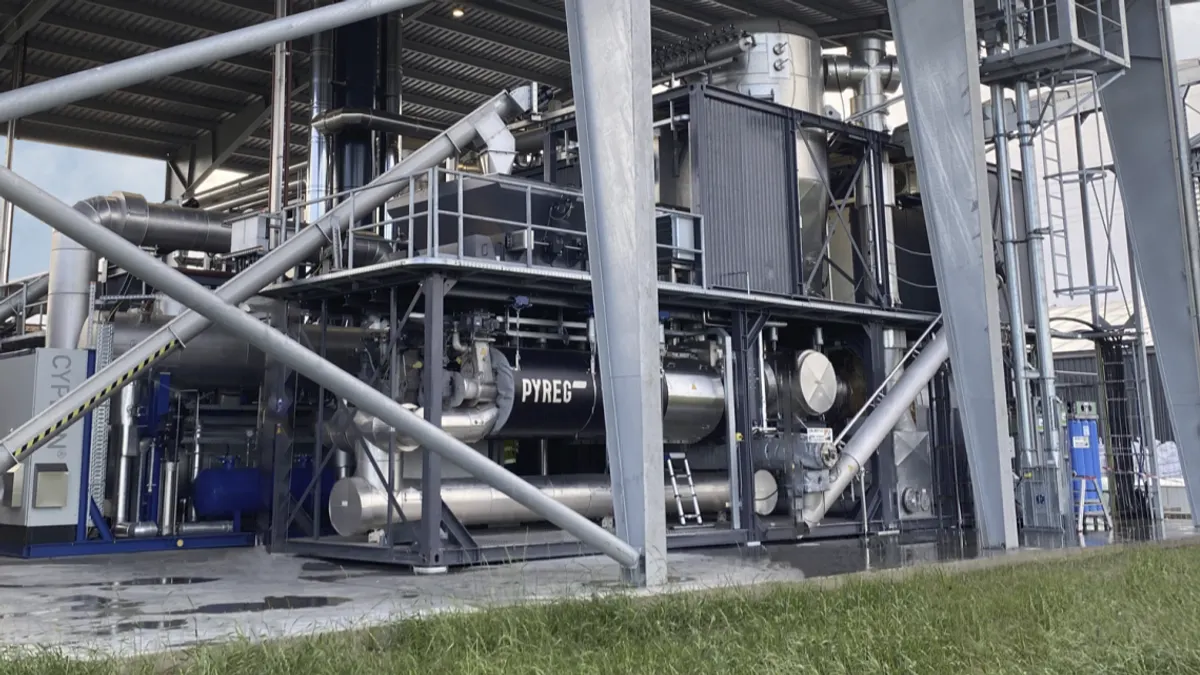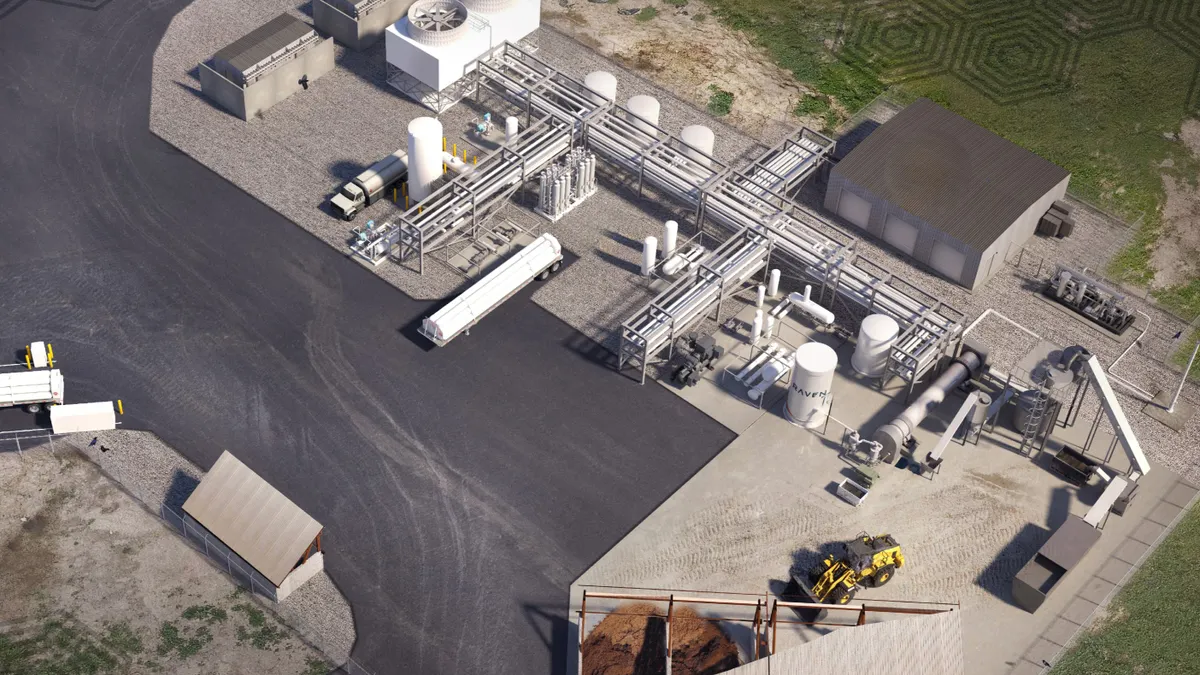A group of more than 30 countries agreed to set methane emission reduction targets for organic waste as part of an international agreement announced last week at COP29, the global climate conference.
The United States was one in a list of countries that together are responsible for 47% of the world's methane emissions. Other signatories include Canada, Russia, Brazil, the United Kingdom and South Korea but notably does not include China or India, the world's two largest methane emitters per the International Energy Agency.
“Fast-tracking actions to reduce methane from organic waste is critical to keep the goals of the Paris Agreement within reach, and can strengthen our food systems globally while harnessing circular economy opportunities,” said Martina Otto, head of the Climate and Clean Air Coalition convened by the UN Environment Programme.
The IEA's most recent annual report noted that methane is responsible for around 30% of the rise in global average temperatures since the Industrial Revolution.
The international community has developed a series of interconnected climate initiatives to pledge and track progress on methane emissions. The Global Methane Pledge, first announced at COP26 in 2021, set signatories like the U.S. on a path to reduce overall methane emissions by 30% below 2020 levels by 2030.
The Biden administration followed up its commitment with the U.S. Methane Emissions Reduction Action Plan in 2021. The plan included action items for the oil and gas sector, waste sector and agriculture sector, some of which the administration has since followed through on. In waste, for example, the U.S. EPA has doled out millions of dollars in funding to reduce food loss and waste.
Federal agencies have also targeted landfill methane emissions, expanding regulatory requirements for landfill gas collection to more facilities and studying new methods of addressing fugitive emissions. The administration released its more comprehensive National Strategy to Advance an Integrated U.S. Greenhouse Gas Measurement, Monitoring, and Information System, which included landfill measures, late last year.
Last week's pledge builds on existing methane reduction efforts. It leaves it up to individual countries to set hard targets. It also includes language encouraging increased financial commitments for waste-related projects, data collection and transparency and collaboration both among countries and with the private sector. It cites UN data finding that wasted food alone contributes to 8 to 10% of global emissions and calls out the sector for disproportionate impacts on vulnerable communities due to open pits, landfills and other facilities.
The COP system has drawn criticism from climate activists in recent years, in part as the economies of host countries the United Arab Emirates (COP28) and Azerbaijan (COP29) rely heavily on promoting oil and gas. In the weeks leading up to this year's conference, a BBC investigation found a senior Azerbaijani official was touting COP29 as an arena for making investments in the state's oil and gas company.
Some have argued that this influence has led high-level climate agreement negotiators to focus on other sources of methane, including the waste and agricultural sectors. Next year's conference will be in Brazil, where the agriculture and waste sectors are responsible for about 90% of the country's methane emissions.
An analysis performed by the Climate Policy Institute last year looked at methane abatement finance flows in 2021 and 2022 and further confirmed those priorities. Researchers with the international think tank found that 55% of funding went to agriculture, forestry and other land use, 45% went to waste and wastewater and just 1% went to fossil fuels, despite the abatement opportunity being essentially the inverse.
The analysis also found investment lagged far behind need. Average annual investment in methane abatement was $13.7 billion in 2021 and 2022, despite the annual need projected to be $48 billion by 2030.
Annual financial commitments lag behind need
As a result, there are still opportunities for abatement in all sectors, including the organic waste space. The sector could mitigate as much as 22 million metric tons of methane gas by 2030, according to the Climate Policy Institute. But investment has fallen short of that goal, and "methane abatement is pursued as a co-benefit rather than a primary impact objective of investment," according to researchers. About 94% of the $4.1 billion spent on solid waste went to waste incineration projects, the researchers found.
The Global Alliance for Incinerator Alternatives has urged countries to invest in more direct forms of organics management in the sector. The group analyzed 99 nationally determined contributions, which are the climate plans developed every five years by each signatory of the Paris Agreement, the landmark climate pact seeking to keep global average temperatures from rising 1.5 degrees celsius over pre-industrial levels.
GAIA’s analysis, published in 2021, found that less than half of countries proposed "better separate collection systems for organic waste and/or composting" in their climate commitments, a key tool to address methane emissions from the sector. The organization is urging countries to incorporate such provisions into their next NDCs, as well as set clear methane targets, dedicate financing to less developed nations and build on the work of existing unions, waste pickers and other frontline workers in the sector.
Against that backdrop, negotiators at COP29 reached an agreement that would require countries to develop organic waste-related initiatives as part of their third round of NDCs, due in mid-2025.
The newest pledge drew praise from the International Solid Waste Association, a global trade group which has advocated for transforming waste materials into resources. ISWA President James Law said that organic waste is responsible for the fastest-growing sector of human-caused methane emissions, and that more needs to be done to address this “silent crisis.”
“The stakes could not be higher,” Law said in a speech ahead of the declaration’s adoption. “This Declaration is a compelling call to governments, businesses, and civil society: Let us work together to turn waste into opportunity, pollution into progress, and methane reduction into a tangible climate victory.”


